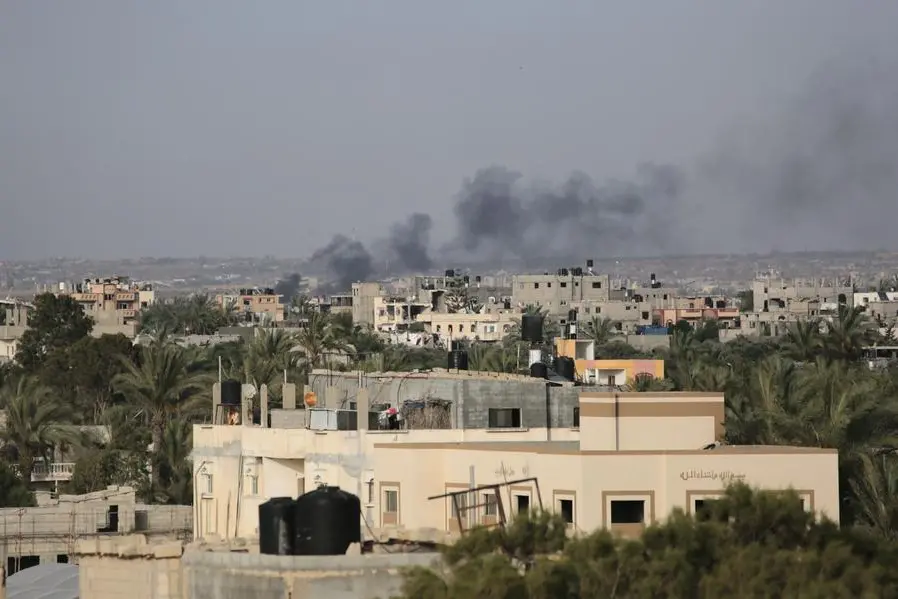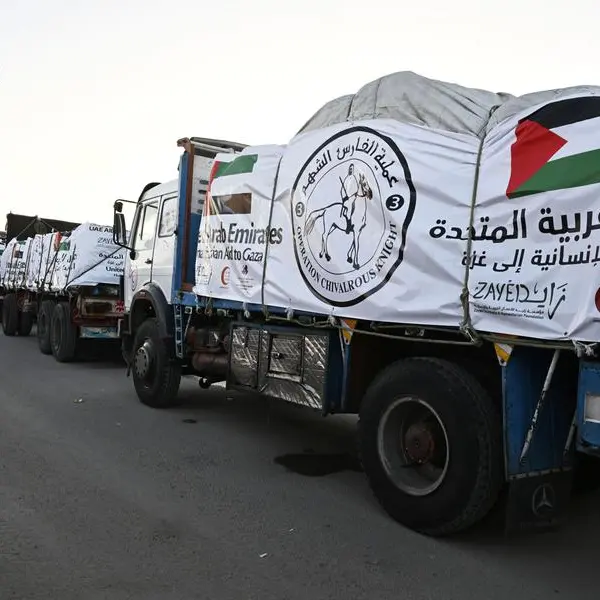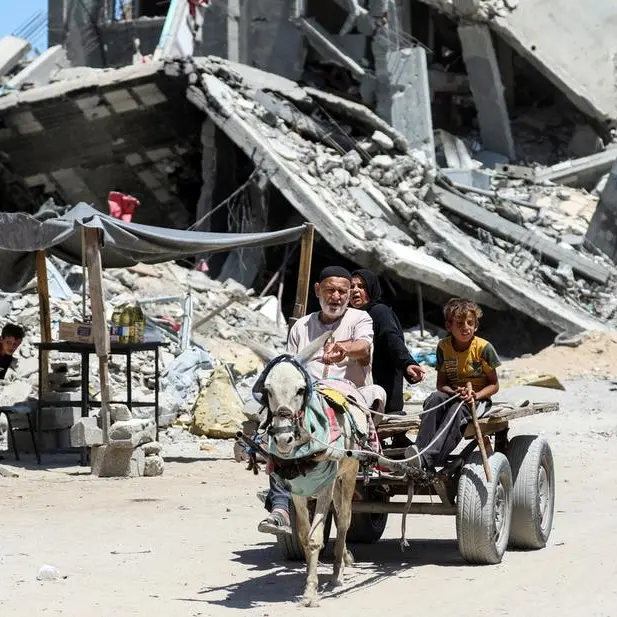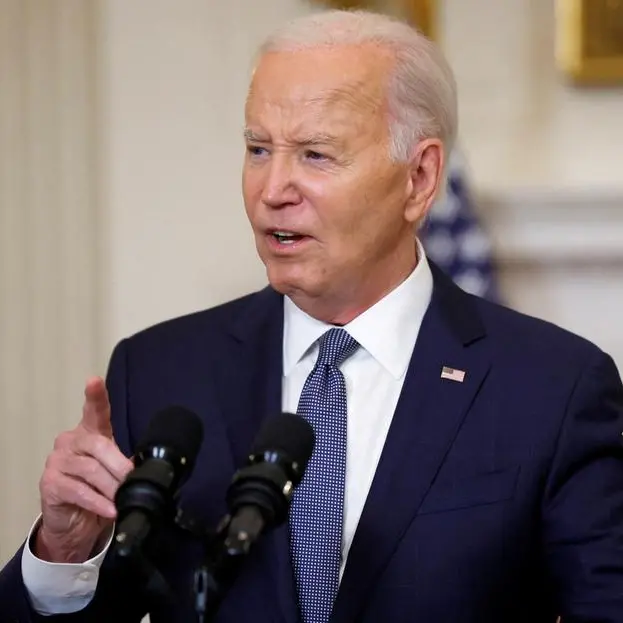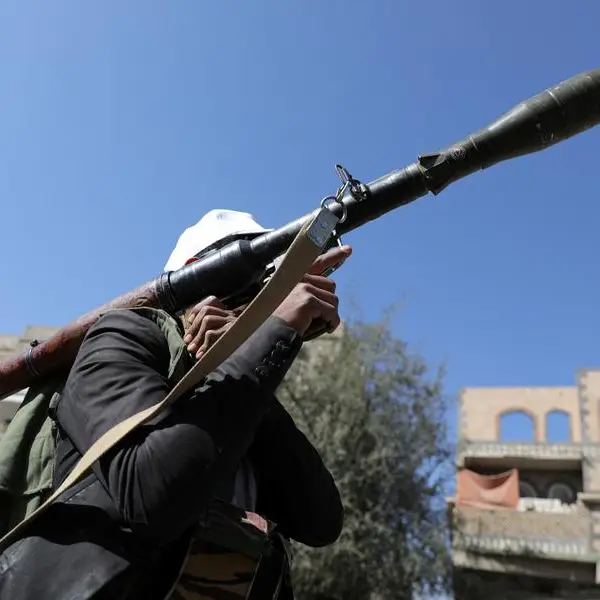PHOTO
New divisions have emerged among Israel's leaders over post-war Gaza's governance, with an unexpected Hamas fightback in parts of the Palestinian territory piling pressure on Prime Minister Benjamin Netanyahu.
The Israeli army has been battling Hamas militants across Gaza for more than seven months while also exchanging near-daily fire with Iran-backed Hezbollah forces along the northern border with Lebanon.
But after Hamas fighters regrouped in northern Gaza, where Israel previously said the group had been neutralised, broad splits emerged in the Israeli war cabinet.
Netanyahu came under personal attack Saturday from war cabinet minister Benny Gantz, who threatened to resign from the body unless the premier approved a post-war plan for the Gaza Strip.
Earlier in the week, Defence Minister Yoav Gallant slammed Netanyahu for failing to rule out an Israeli government in Gaza after the war.
The prime minister's outright rejection of post-war Palestinian leadership in Gaza has broken wide open a rift among top politicians and also frustrated relations with top ally the United States.
Experts say the lack of clarity only serves to benefit Hamas, whose leader has insisted no new authority can be established in the territory without its involvement.
"Without an alternative to fill the vacuum, Hamas will continue to grow," International Crisis Group analyst Mairav Zonszein told AFP.
Emmanuel Navon, a lecturer at Tel Aviv University, echoed this sentiment.
"If only Hamas is left in Gaza, of course they are going to appear here and there and the Israeli army will be forced to chase them around," said Navon.
"Either you establish an Israeli military government or an Arab-led government."
- US pressure -
Gantz said Saturday the war cabinet needed to draft and approve a broad range of plans within three weeks, including the formation of an "American, European, Arab and Palestinian administration that will manage civilian affairs in the Gaza Strip".
Earlier in the week Gallant had struck out at Netanyahu, urging him "to make a decision and declare that Israel will not establish civilian control over the Gaza strip".
Netanyahu is also under pressure from Washington to bring a swift end to the conflict and avoid being mired in a long counterinsurgency campaign.
Washington has previously called for a "revitalised" form of the Palestinian Authority to govern Gaza after the war.
But Netanyahu has rejected any role for the PA in post-war Gaza, saying Thursday that it "supports terror, educates terror, finances terror".
Instead, Netanyahu has clung to his steadfast aim of "eliminating" Hamas, asserting that "there's no alternative to military victory".
Experts say confidence in Netanyahu is running thin.
"With Gallant's criticism of Netanyahu's failure to plan for the day after in terms of governing Gaza, some real fissures are beginning to emerge in the Israeli war cabinet," Colin P. Clarke, director of policy and research at the Soufan Group think tank, wrote on X, formerly Twitter.
"I'm not sure I know of many people, including the most ardent Israel supporters, who have confidence in Bibi," he said, using Netanyahu's nickname.
- Hostage 'impasse' -
The Gaza war broke out after Hamas's attack on southern Israel which resulted in the deaths of more than 1,170 people, mostly civilians, according to an AFP tally of Israeli official figures.
The militants also seized about 250 hostages, 125 of whom Israel estimates remain in Gaza, including 37 the military says are dead.
Israel's military retaliation has killed at least 35,386 people, mostly civilians, according to the Hamas-run Gaza's health ministry, and an Israeli siege has brought dire food shortages and the threat of famine.
Many Israelis supported Netanyahu's blunt goals to seek revenge on Hamas in the aftermath of October 7.
But now, hopes have faded for the return of the hostages and patience in Netanyahu may be running out, experts said.
On Friday, the army announced it had recovered bodies of three hostages who were killed during the October 7 attack. It said Saturday the body of another hostage was recovered in the same operation.
After Israeli forces entered the far southern city of Rafah, where more than a million displaced Gazans were sheltering, talks mediated by Egypt, the United States and Qatar to release the hostages have ground to a standstill.
"The hostage deal is at a total impasse -- you can no longer provide the appearance of progress," said Zonszein of the International Crisis Group.
"Plus the breakdown with the US and the fact that Egypt has refused to pass aid through Rafah -- all those things are coming to a head."
